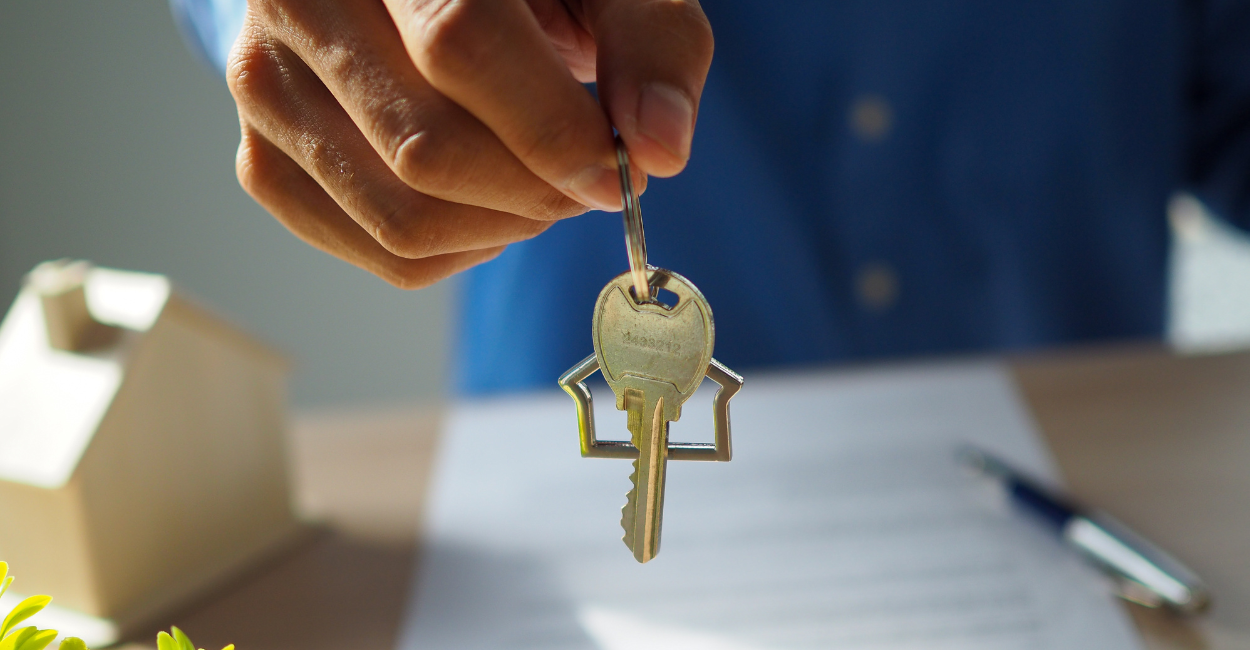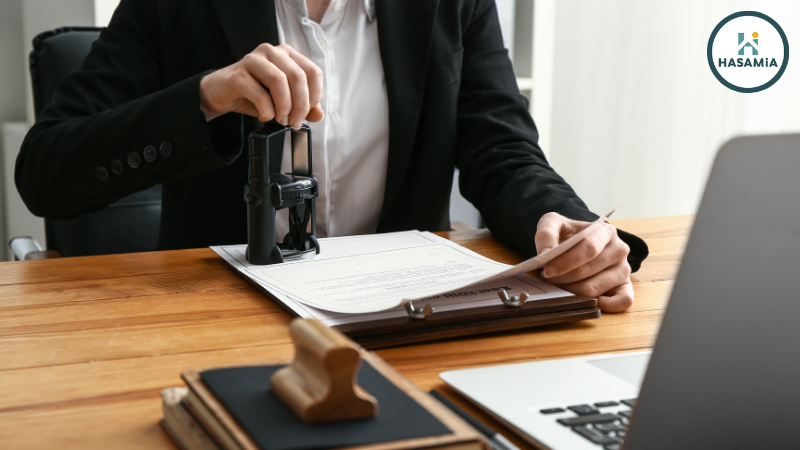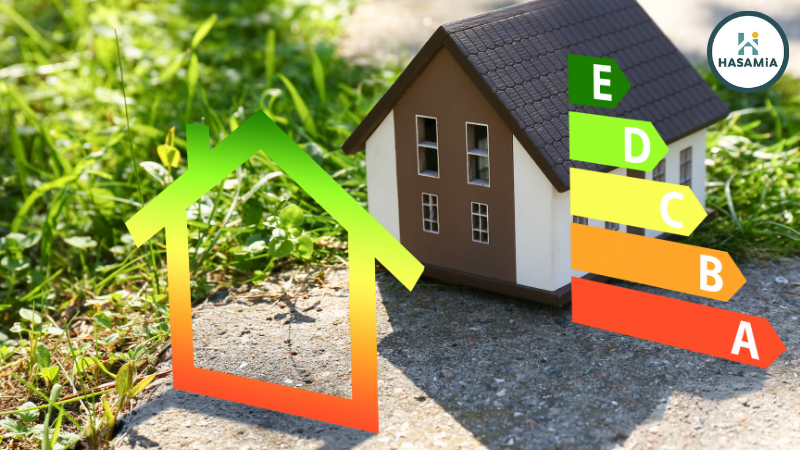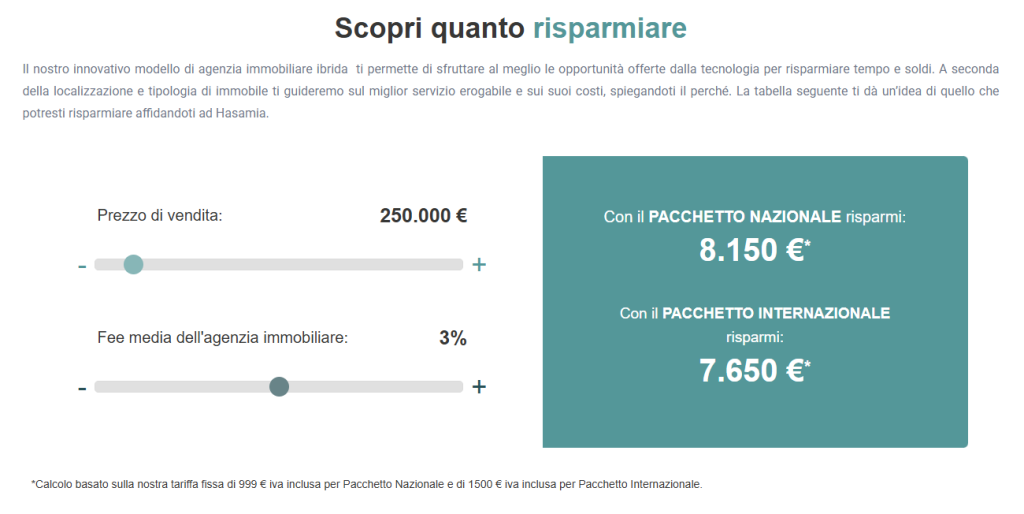Selling your home privately, without an agency, may seem like a cost-effective option—especially if you want to save on commission fees—but it’s a process that requires careful preparation and attention.
The real estate market is competitive and full of pitfalls. If you want to handle the sale on your own, you need to understand all the essential steps, avoid common mistakes, and prepare the necessary documentation to ensure a safe and smooth transaction. This guide provides practical advice on how to sell your home privately without risks, including all the documents you need to prepare and useful tips to maximize the value of your property.

The Risks of Selling Your Home Privately
Around 30% of property sellers choose not to work with a real estate agency. Here’s why the market is seeing an increase in homes being sold privately.
You might be considering selling your home on your own, and there are many valid reasons to do so. However, without professional support, you could face several risks, including:
– Incorrect pricing: An inaccurate valuation can drive away buyers or cause you to lose money.
– Legal issues: Mistakes in documentation can halt the sale.
– Unreliable buyers: Negotiating with people who aren’t genuinely interested can waste your time.
– Frauds: Irregular payments or unfulfilled promises can turn the sale into a nightmare.
How can you avoid these pitfalls? Be well-prepared, follow a clear strategy, and keep reading to learn how to save on agency commissions.
Key Steps for Selling Your Home Privately
1. Set the Right Sale Price
You can’t sell your home without knowing its market value. Avoid guessing and consider these options:
– Real estate portals: Check the prices of similar homes in your area.
– Online valuation tools: Platforms like OMI (Italian Real Estate Market Observatory) or online tools such as Hasamia’s property estimator can give you a preliminary price with just a few clicks.
– Professional appraisal: A certified expert can provide an accurate valuation. Request an on-site appraisal to account for the unique features of your property, helping you set the right price.
An incorrect price can slow down the sale or cause you to miss valuable opportunities. Setting a price too high might leave your property on the market for months without serious offers, while pricing too low could attract unserious buyers or lead to underselling. A precise and realistic valuation is crucial for a smooth and fast selling process.
2. Prepare Your Home for Sale
A well-presented home sells faster and at a better price. Here’s what you can do:
– Clean and organize: Every detail counts to make a positive first impression.
– Minor repairs: Fix cracks, touch up paint, and check systems and appliances.
– Home staging: If your property is unfurnished, enhance the space with warm lighting, neutral décor, and optimized layouts.
If your home isn’t properly prepared, buyers may struggle to envision themselves living there, slowing down the sale. A neglected property can give the impression of poor maintenance, raising doubts about structural quality. Even small imperfections can become negotiation points, reducing the final sale price.
Discover the best strategies to sell your home quickly and effectively.
3. Creating an Effective Listing
Before publishing your property, it’s essential to write a well-structured and compelling listing.
– Catchy title: Highlight the property’s main selling points.
– Clear and detailed description: Include square footage, number of rooms, distinctive features, and nearby points of interest.
– High-quality photos: Use well-lit, professional images to attract more views. Check out our tips on how to take photos that help sell your home.
A poorly written or unclear listing can discourage buyers, making your property less competitive compared to well-prepared listings. Blurry or unrepresentative photos, vague descriptions, or missing practical information can reduce credibility and
prolong the selling process.
4. Publishing Your Listing on Portals
Once your listing is ready, it’s time to publish it on the right channels.
– Real estate portals: Post on the main property websites to maximize visibility. Take advantage of international exposure through platforms like Hasamia to reach more potential buyers.
– Social media: Use Facebook Marketplace or local groups to reach a wider audience.
– Word of mouth: Inform friends and acquaintances, which can be an effective way to find buyers.
5. Managing Appointments and Property Viewings
After attracting potential buyers’ interest, it’s essential to organize and manage viewings professionally:
– Flexible scheduling: Be available at convenient times for buyers.
– Organized presentation: Prepare the home neatly and highlight its best features.
– Screening contacts: Ensure that those booking a viewing are genuinely interested and not just curious.
– Provide detailed information: Answer questions transparently to avoid misunderstandings or unproductive negotiations.
Disorganized viewings can cause confusion, waste time, and discourage potential buyers. Planning appointments carefully makes the process more efficient and productive.
6. Handling the Negotiation
Receiving an offer is just the beginning of the most delicate stage of the selling process. It’s important to evaluate proposals carefully and negotiate wisely:
– Evaluate the offer: Compare the proposed price with the market value and other offers received.
– Payment conditions: Check if the buyer needs a mortgage or can proceed with immediate payment.
– Clear agreements: Discuss and define any special requests from the buyer, such as property handover timing or inclusion of furnishings.
Poorly managed negotiations can lead to excessive demands from the buyer or wasted time with unserious offers. Being prepared and knowing the strengths of your property helps close the sale in a more advantageous and secure way.
7. Closing the Negotiation
Once you’ve identified the most advantageous offer and decided to accept it, the final stage of negotiation is crucial to ensure a smooth property transfer.
At this stage, it’s essential to draft a preliminary contract, also known as a “compromesso,” which outlines all agreements reached:
– Agreed price
– Payment methods
– Any special conditions
A deposit is often requested, serving as a guarantee of the commitment made by both parties. While not final, this document binds the parties and sets the stage for the formal final agreement.
Even at this stage, mistakes can occur – such as overlooking important clauses, miscalculating the amount needed to settle a mortgage, or failing to include a suspensive clause – which could lead to unexpected costs, improperly settled loans, or, worse, jeopardize the entire transaction.
8. The Final Agreement
The next step is the appointment with the notary, an indispensable figure for securely completing the sale. The notary verifies the completeness and correctness of the documentation and drafts the deed of sale (rogito notarile).
During this meeting, the notary clearly explains every clause of the contract, ensuring that the property transfer complies with current laws and protects both the seller and the buyer.
The notary’s fees – usually borne by the buyer – vary based on the property’s value and the complexity of the procedure.
Generally, the fee ranges around 1–2% of the sale price, including VAT and notarial taxes, and is paid at the time of the deed, often via bank transfer or certified check.
If the property has an outstanding mortgage, the notary deed must include the settlement of the remaining debt: a portion of the sale proceeds is used to pay off the mortgage, allowing the cancellation of the existing lien.
If the buyer intends to finance the purchase with a mortgage, it’s crucial to include a suspensive clause in the preliminary contract, making the completion of the sale conditional upon obtaining the loan. In both cases, the notary ensures that all mortgage procedures are correctly followed, guaranteeing the validity and security of the entire transaction.
Risks and Precautions in the Final Stage
Handling the final stage of a property sale independently, without the support of an experienced real estate agent, can carry several risks.
Mistakes may occur in drafting the preliminary contract (compromesso) or in verifying documentation, potentially leading to legal consequences, delays in mortgage settlement, or issues with the buyer obtaining financing.
It’s essential to pay attention to details such as:
– Correct verification of mortgage liens
– Inclusion of suspensive clauses for the buyer’s mortgage
– Timely payment of notary fees
Lack of qualified support increases the likelihood of misunderstandings, bureaucratic errors, and complications that could compromise the security and speed of the transaction.
Documents Needed to Sell a Home Privately
To ensure a safe and legally compliant sale, it’s crucial to gather key documents before listing the property. Being prepared allows you to respond confidently to buyer inquiries and ensures a smooth closing.
1. Deed of Ownership (Atto di provenienza dell’immobile)
– Confirms the seller’s legal ownership of the property.
– Highlights any liens, encumbrances, or mortgages affecting the property.
2. Cadastral Records (Visure catastali)
– Official documents detailing property identification, cadastral income, and registered status.
– Confirms conformity between the property and official records.
3. Cadastral Floor Plans (Planimetrie catastali)
– Graphical representations of the interior layout.
– Ensures the property matches official records.
4. Map Extract (Estratto di mappa) – for properties with land
– Shows location, boundaries, and land area.
– Helps verify proper property limits and identify zoning issues.
5. Urban and Cadastral Compliance Report (Relazione di conformità urbanistica e catastale)
– Certifies the property meets building regulations and cadastral requirements.
– Confirms any modifications or extensions were authorized.
6. Energy Performance Certificate (APE – Attestato di Prestazione Energetica)
– Indicates the property’s energy efficiency class.
– Provides buyers with clear information on energy consumption and future costs.
7. Systems Certification (Certificazione impianti)
– Confirms that electrical, plumbing, and heating systems comply with current safety standards.
– Ensures technical functionality and safety.
If you’re unsure how to obtain these documents, don’t worry – check out the complete guide on where to find the documents needed to sell your home.
How to Reduce Risks and Sell Your Home Privately, Safely
Compliance with Current Regulations
To avoid unexpected issues and bureaucratic delays, it is crucial to carefully follow all applicable laws.
– Organize all essential legal and tax documents from the start.
– Stay informed about the latest regulations, such as the requirement to draft the preliminary contract (compromesso) as a public deed or authenticated private writing. By managing these aspects meticulously, you significantly reduce the risk of errors that could compromise the sale.
Negotiation and Preliminary Agreements
The negotiation phase is critical: a well-structured preliminary contract prevents misunderstandings and sets clear rules for both parties.
– Maintain a firm stance, refusing unfavorable offers.
– Be flexible enough to reach a fair compromise.
This approach ensures a transparent and secure transaction, allowing both parties to proceed confidently.
Legal Advice
Engaging a specialized real estate lawyer is an effective strategy to minimize risks when selling privately.
A legal professional can provide support throughout the process, including:
– Property valuation
– Management of legal and tax documentation
– Negotiation and drafting of the final contract
Their expertise helps prevent bureaucratic errors, legal problems, and unexpected tax complications, ensuring a secure, lawcompliant transaction.
Additionally, legal advice can simplify post-sale procedures, such as transferring utilities and settling condominium fees, guaranteeing that all steps are completed smoothly and correctly.
How to Sell Your Home and Save Over €5,000 in Fees
With Hasamia, you can sell your home easily, quickly, and safely, while keeping full control over the entire process.
Unlike traditional agencies, Hasamia does not charge commissions. Instead, it offers fixed-price packages that can save you over €5,000. Starting from just €999, you can rely on an expert to guide you through every stage of the sale, without losing the benefits of selling privately. You’ll always have an agent by your side to assist with documentation and negotiation, reducing the risk of errors and complications, while retaining full autonomy and control.
With Hasamia, selling your home becomes a smart choice—saving you money, time, and stress, with a service tailored to your needs.













